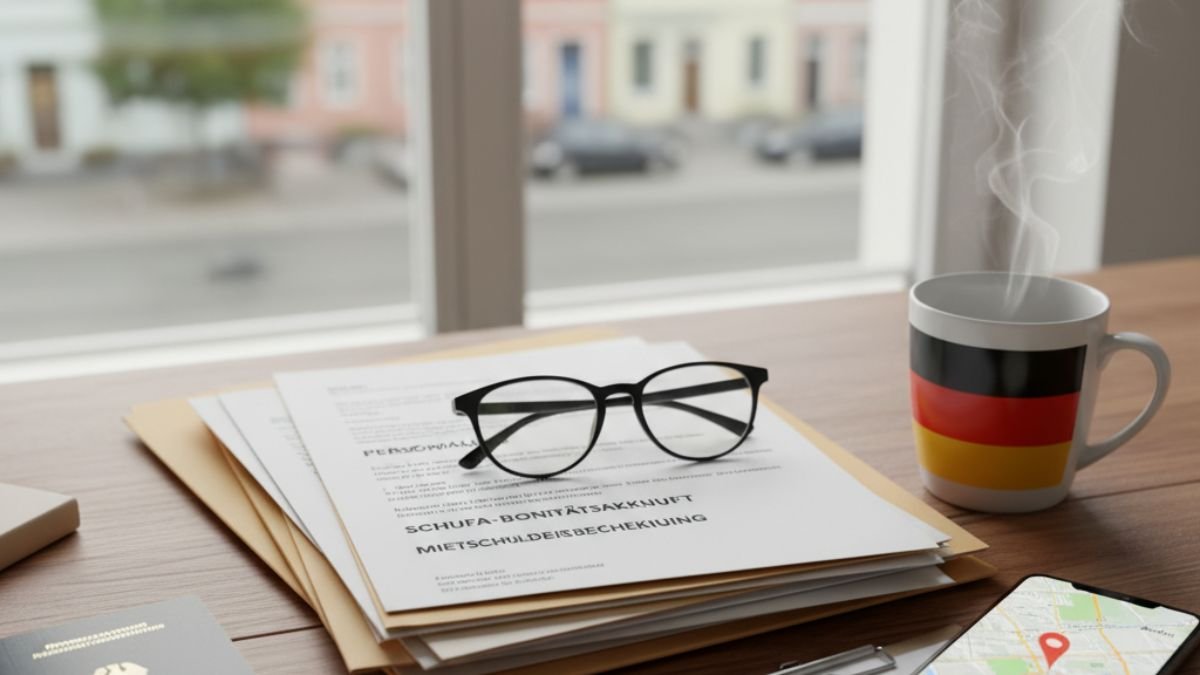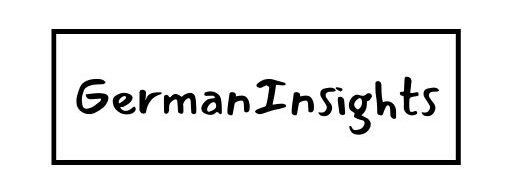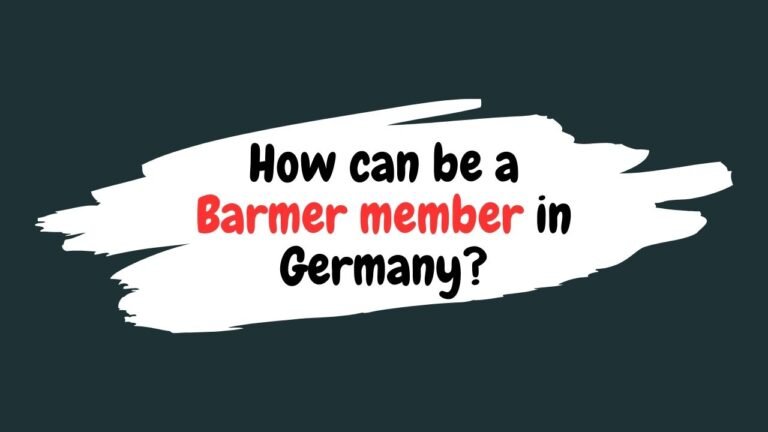Your Essential Checklist: All The Documents You Need to Rent an Apartment in Germany

Finding a place to call home in Germany can be an exciting prospect, but the process of securing a rental apartment, especially in competitive housing markets, requires thorough preparation. German landlords are known for their meticulousness, and having all your documents in order will significantly increase your chances of landing your desired flat. This comprehensive checklist will guide you through the essential paperwork you’ll need to assemble for a successful apartment hunt in Germany.
Documents needed to rent in Germany
To rent an apartment in Germany, landlords typically require a comprehensive application package that includes proof of income, a credit report (SCHUFA), and a record of prior rental payments. For foreigners and newcomers, specific alternatives may be needed if they don’t have a local credit history.
Essential documents
The following documents are often requested by German landlords and should be prepared in advance:
- Completed tenant application (Mieterselbstauskunft): This form requests personal details like your name, occupation, and household members. Landlords provide this form at a viewing.
- Proof of income (Einkommensnachweis): This generally consists of your last three months’ pay slips or an employment contract. If you are a new employee, your contract is usually sufficient.
- Credit report (SCHUFA-Auskunft): This shows your creditworthiness.
- New arrivals to Germany: If you don’t have a SCHUFA report, you can sometimes provide a bank reference from your home country or arrange for a relative in Germany to act as a guarantor.
- Proof of no rental debts (Mietschuldenfreiheitsbescheinigung): This is a letter from your previous landlord confirming you have no outstanding rent.
- New arrivals to Germany: If you are coming from abroad, a letter of reference from a previous landlord detailing your payment history is helpful. Consider having it translated into German.
- Copy of passport or ID (Ausweiskopie): This is for identification purposes. Landlords may verify your identity at the viewing but are legally restricted from keeping a copy without your permission. If requested for the rental contract, it’s advised to redact unnecessary information to prevent identity theft.
- Confirmation of employment: A letter from your employer can strengthen your application.
After signing the rental contract
Once you secure an apartment, you must complete the Anmeldung (city registration) within 14 days of moving in. To do this, you will need to take the following to your local registration office (Bürgeramt):
- A valid passport or ID
- The rental agreement (Mietvertrag)
- A move-in confirmation (Wohnungsgeberbestätigung) signed by your landlord
The “Must-Have” Documents for Every Applicant In Details
Regardless of your nationality or employment status, there are several key documents that virtually every landlord or property manager will expect to see. Consider these your absolute essentials:
1. Proof of Identity (Identitätsnachweis)
- What it is: A valid government-issued identification document.
- What to provide: For German and EU citizens, this is your Personalausweis (ID card) or passport. For non-EU citizens, a valid passport with your current residence permit is required.
- Pro-Tip: Have clear, legible copies of these documents ready to hand over. Never give away your original documents.
2. Proof of Income (Einkommensnachweis)
- What it is: Evidence that you have a stable and sufficient income to cover the rent. Landlords typically look for a net income that is at least three times the “cold rent” (Kaltmiete).
- What to provide:
- For employees: Your last three salary statements (Gehaltsabrechnungen).
- For newly employed individuals: A copy of your employment contract (Arbeitsvertrag) stating your salary and the duration of your employment.
- For self-employed individuals: Your most recent tax assessment (Steuerbescheid) and/or a profit and loss statement (Betriebswirtschaftliche Auswertung – BWA) prepared by a tax advisor. Bank statements showing regular income can also be helpful.
- For students: A letter of confirmation for a scholarship, a statement of financial support from parents, or proof of a blocked account (Sperrkonto).
3. SCHUFA Credit Report (SCHUFA-Bonitätsauskunft)
- What it is: This is arguably one of the most crucial documents. The SCHUFA is Germany’s leading credit protection agency, and this report provides landlords with an overview of your creditworthiness and payment history.
- How to get it: You can order your SCHUFA report online directly from their website. There is a free version available once a year (Datenkopie nach Art. 15 DS-GVO), but the paid version, specifically designed for landlords (SCHUFA-BonitätsCheck), is often preferred as it is more concise and easier to read.
- For Newcomers: If you are new to Germany, you won’t have a SCHUFA record. In this case, be upfront with the landlord and offer alternative documents such as a letter from your employer or proof of savings. Some international rental platforms also do not require a SCHUFA.
Frequently Requested and Highly Recommended Documents
While the above are non-negotiable, the following documents can significantly strengthen your application and set you apart from other potential tenants.
1. Certificate of No Rental Debt (Mietschuldenfreiheitsbescheinigung)
- What it is: A letter from your previous landlord confirming that you have paid all your rent and have no outstanding debts.
- How to get it: Simply request this from your current or most recent landlord. While landlords are not legally obligated to provide one, most will do so if you have been a good tenant. If you are unable to obtain this, you can offer bank statements showing consistent rent payments for the last 6-12 months as an alternative.
2. Tenant Self-Disclosure Form (Mieterselbstauskunft)
- What it is: A standardized form where you provide personal details such as your name, contact information, number of people who will be living in the apartment, your profession, and your net income. Landlords often provide their own form, but it’s wise to have a completed generic one on hand.
- Pro-Tip: Be honest and thorough in filling this out. It’s a landlord’s first impression of you as a potential tenant.
Special Considerations for Students and Foreigners
The German rental market can seem daunting for those who don’t fit the standard mold of a long-term employee. Here’s what you need to know:
- Guarantor (Bürgschaft): If your income is low or you are a student, a landlord may ask for a guarantor. This is a person, often a parent or a close relative, who signs a document agreeing to cover your rent if you are unable to pay. The guarantor will also need to provide proof of their income.
- Liability Insurance (Haftpflichtversicherung): While not always a mandatory document for the application, having personal liability insurance is highly recommended in Germany. It covers damages you might accidentally cause to the rental property. Mentioning that you have this insurance can be a bonus point in your application.
By preparing this checklist of documents in advance, you will be well-equipped to navigate the German rental market with confidence. A well-organized and complete application demonstrates your seriousness and reliability as a future tenant, bringing you one step closer to your new home in Germany.
If you’re looking for more blog like Decoding Kaltmiete, Warmmiete, and Nebenkosten and The Best Websites for Finding a Flat in Germany subscribe to join us.






